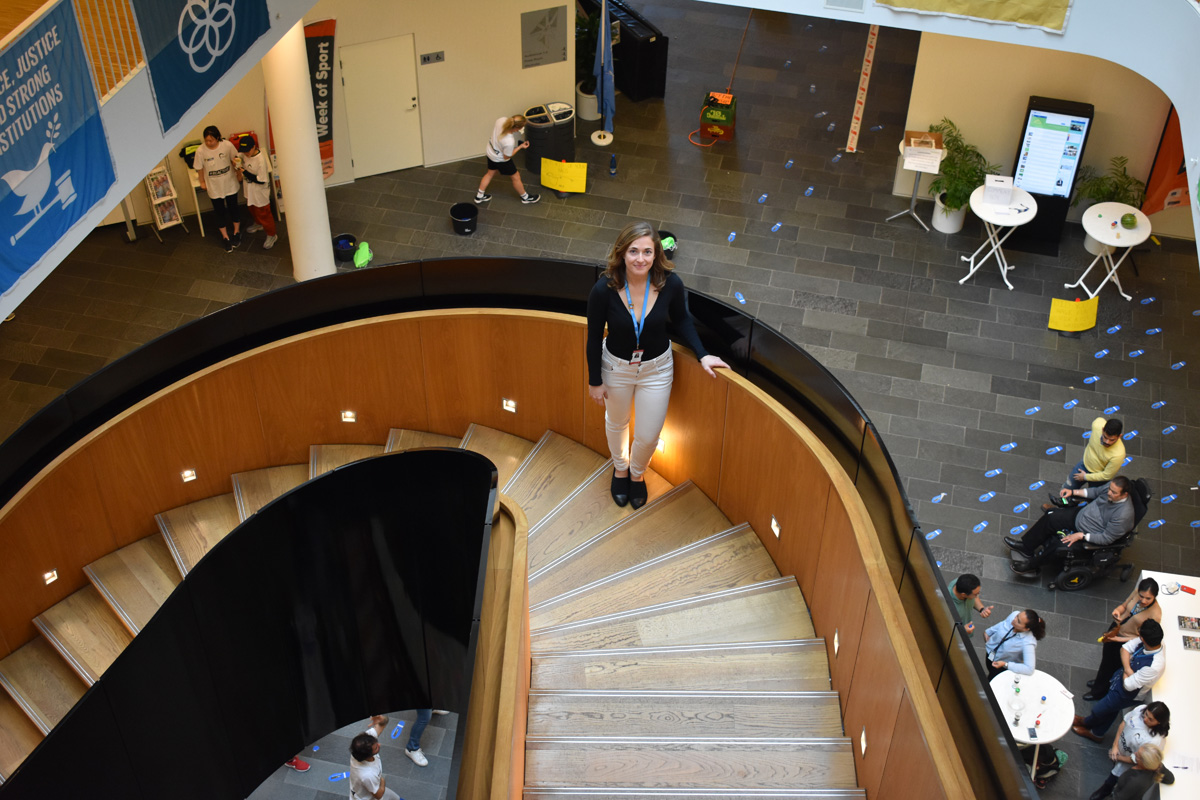ISCA talks physical activity promotion with Lea Nash Castro from WHO Europe
01/10/2018
ISCA and the Ollerup Academy of Physical Education visited UN City in Copenhagen on 28 September as part of the European Week of Sport Denmark, thanks to the initiative of WHO Europe, which followed up on the success of last year’s event with more lunch time physical activity for UN City staff. In the same week, WHO Europe also published a new set of advocacy factsheets mapping available national documents and action plans, recommendations, goals and surveillance for physical activity, and potential networks for interested stakeholders to get in touch.
We spoke to WHO Europe Technical Consultant Lea Nash Castro about these latest developments and our “Office activity takeover” at UN City.
What is your one keyword of today’s “Office activity takeover” by ISCA and Ollerup in connection to this year’s European Week of Sport – and why?
LNC: I think the keyword after experiencing this for me would be fun, and if I can add one more, inclusive, because I thought there was something for everyone and I saw people of different ages, backgrounds and styles participating. So that was great to see – very inclusive.
Which activities did you try today and which was your personal favourite?
LNC: I tried most of them. I tried the jumping one of the post-its on the all. It tried different games – one where you had to throw something in the bucket. But by far my favourite was the back-flipping – with help, of course.
What are the most recent developments in WHO Europe when it comes to the HEPA agenda?
LNC: Actually, just this week WHO Europe published a set of factsheets on physical activity for the 28 EU member states, and we published one set of country factsheets where we outlined all of the main developments on a policy level for physical activity regarding 23 different indicators. So really ranging from many different things on physical activity in each country. But we also published some specific factsheets on physical activity and the education sector and the health sector. So we’re showing a lot of different success stories or case examples from countries they wanted to highlight.
What is the value for WHO Europe to work together with ISCA (as a civil society organisation) on an event like today – and the broader HEPA agenda?
I think there are many opportunities and a lot of potential for working together. We acknowledge the role of civil society in helping WHO and all the other UN agencies in achieving the Sustainable Development Goals and of course ISCA is no exception to this work, working very directly especially with our good SDG 3 about health and wellbeing. So we think that these collaborations can really help WHO achieve their goals as well and support our member states, but also to identify the needs of the people in the countries and perhaps those whose voices are not so easily heard and help us to listen to those important voices as well.
Download the new WHO Europe Physical Activity Factsheets here